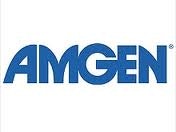The drug development field is a potentially lucrative, although always dangerous area for small companies and their investors to participate in. The development process can take up to fifteen years from start to finish, at which point companies can look forward to managing post-approval activities and monitoring the drug manufacturing process. Even at the end, things can unfortunately go wrong. For a cautionary tale, let’s take the case of Affymax, Inc. (NASDAQ:AFFY).

Once a month, I like that
The company had been developing and commercializing Omontys, a once-monthly, injectable drug that treats anemia, a condition that causes a deficient amount of oxygen to reach vital organs and tissues. The condition is prevalent in people suffering from cancer and chronic kidney disease, a rising segment of the population. While other drugs on the market can treat anemia, led by Amgen, Inc. (NASDAQ:AMGN)’s Epogen, Omontys was the only approved injectable drug for anemia. In March 2012, Affymax, Inc. (NASDAQ:AFFY) and its partner, Japan-based Takeda Pharmaceuticals, received FDA approval and things appeared to be rosy for the companies.
However, the companies issued a product recall in February 2013 after a small portion of patients developed hypersensitivity reactions, including three fatal reactions. While Takeda was barely affected by the news, Affymax, Inc. (NASDAQ:AFFY) lost 75% of its market value due to its lack of any other commercially-viable products. In March, the company subsequently announced that it was reducing its workforce by 75% and considering its options.
Get some diversification
More than most businesses, pharmaceutical companies require strong diversification in their product mix. Even blockbuster drugs have limited shelf lives and patent protection periods, requiring companies to have massive research and development programs or the ability to acquire existing product portfolios. Amgen, Inc. (NASDAQ:AMGN) and Valeant Pharmaceuticals Intl Inc (NYSE:VRX) have become two of the industry’s leaders through their product diversification efforts, despite the fact that they follow very different corporate strategies.
The biotech pioneer
Founded in 1980, Amgen, Inc. (NASDAQ:AMGN) was the original biotech pioneer as it embarked on the discovery of drugs that could treat chronic health problems like cancer, kidney disease, and rheumatoid arthritis. The company hit home runs with the FDA approval of Epogen in 1989, Neupogen in 1991, and Enbrel in 1998. More recently, the company has received approvals for next generation versions of its blockbuster drugs, while also working on treatments for cholesterol and bone diseases.
In FY2012, the company achieved solid financial results, with increases in revenues and operating income of 10.8% and 29.3%, respectively, versus the prior year. Amgen, Inc. (NASDAQ:AMGN)’s sales benefited from a larger treatment population for its drugs, as well as higher average pricing. While the federal government’s implementation of changes to its health care programs has led to higher costs for pharmaceutical companies, Amgen used its global base of operations to produce a higher operating margin in 2012.


